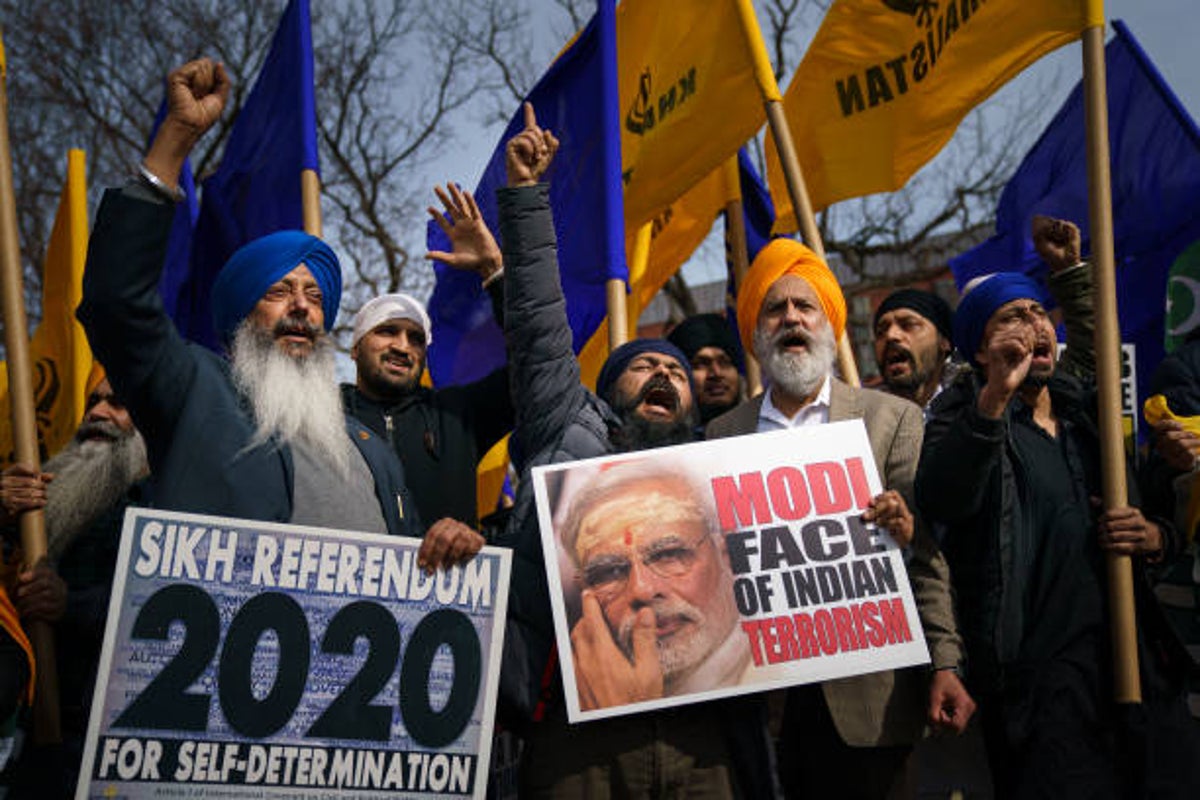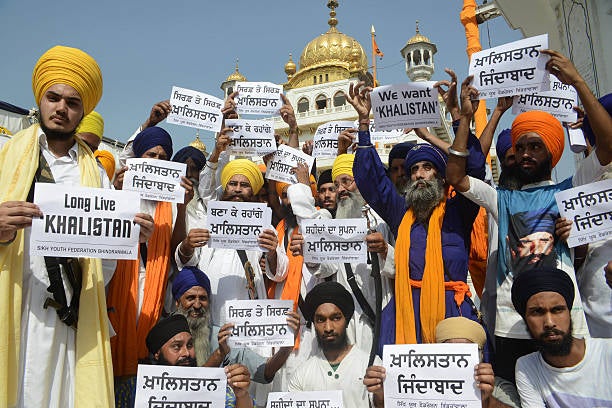
The Modi government has issued its sharpest statement yet over what it calls “anti-India activities” originating from Canada, expressing its concern and disappointment over Ottawa’s apparent lack of action on the matter.
It comes after thousands of Canadian Sikhs took part in an unofficial voting exercise earlier this week dubbed the “Khalistan referendum”, expressing their support for a separate Sikh nation-state to split away from New Delhi in northern India.
While the Canadian authorities have defended this as an exercise in freedom of speech, the Indian foreign ministry has accused Canada of allowing extremists to carry out “deeply objectionable” and “politically-motivated exercises” that represent a threat to the integrity of India.
In an advisory issued on Friday for its own nationals and students visiting Canada, India warned them to “exercise due caution and remain vigilant” amid a “sharp increase” in hate crimes and sectarian violence there.
With immigrants from India accounting for at least 1.4 per cent of the population of Canada, including a sizeable Sikh diaspora, the Khalistani campaign is becoming an increasingly sore point in relations between New Delhi and Ottawa.
What is the ‘Khalistan referendum’?
The unofficial “referendum” is a voting exercise that is being organised across several countries by the US-based Sikhs for Justice (SFJ) organisation, which was banned in India in 2019 for “espousing secessionism and militant [activities]”.
The referendum seeks to establish a consensus among Sikh communties to carve out a separate homeland within India, which will be known as Khalistan. It is generally proposed that this be achieved through carving out the Indian state of Punjab, the only Sikh-majority state in the country.
The campaign group says it would then approach the UN and other international human rights bodies with the demand to re-establish “Punjab as a nation state”.
Formed in 2007, the SFJ is headed by Gurpatwant Singh Pannun, a law graduate from Panjab University who is currently an attorney in the US.

The group first announced in 2018 that it would hold an unofficial voting exercise, at the time dubbed “Referendum 2020”, across several countries with sizeable Sikh diasporas, with the aim to “liberate Punjab from Indian occupation”.
“SFJ in its London Declaration [in August 2018] has announced to hold the first ever non-binding referendum among the global Sikh community on the question of secession from India and re-establishing Punjab as an independent country,” according to the SFJ website.
It said it planned to hold the referendum in Punjab along with major cities of North America, Europe, Australia, New Zealand, Malaysia, the Philippines, Singapore, Kenya and the Middle East.
The Indian authorities in Punjab have claimed SFJ and the “Referendum 2020” campaign are being promoted and funded Pakistan as a means to destabilise India. Intelligence agencies in India have said the SFJ website shares its domain with a Karachi-based website, as evidence for this.
There are nearly a dozen cases registered against SFJ and Mr Pannun in India, including three sedition cases in Punjab.
What happened in Canada?
On 19 September, a purported 100,000 people took part in the Khalistan Referendum Brampton to vote in favour of the demand for a separate homeland for Sikhs in India.
Videos and pictures on social media showed Sikhs carrying yellow flags with “Khalistan” inscribed on them, queuing up in long rows to cast their votes.
A Hindu temple was also defaced in Toronto’s Etobicoke earlier this week, with graffiti reading “Long live Khalistan” painted in orange on one of the walls.
A similar referendum was held in London in November 2021 with campaigners claiming that some 10,000 to 12,000 people participated. However, other reports say just 100-150 people showed up in the initial hours of the referendum.
What has Indian government said?
India says it is actively engaging with Canada and other governments on the Khalistan issue.
“The farcical exercise was held by the extremists and radical elements supporting the so-called Khalistan referendum in Canada and elsewhere I think,” said government spokesperson Arindam Bagchi at his weekly media briefing on Thursday. “The matter has been taken up with the Canadian authorities through diplomatic channels.”
He said the government of Canada has reiterated that they respect the sovereignty and territorial integrity of India, and that they will not recognise the so-called referendum.
“However, we find it deeply objectionable that politically motivated exercises by extremist elements are allowed to take place in a friendly country. You’re all aware of the history of violence in this regard,” he said.
Issuing the advisory for Indian nationals on Friday, Mr Bagchi said they have taken up the matter with Canadian counterparts to call for an investigation of hate crimes.
“The perpetrators of these crimes have not been brought to justice so far in Canada,” he said.
The ministry has urged Indian nationals and students from India in Canada to register with the High Commissions of India via an online portal, so that they can connect with them in times of emergency.







